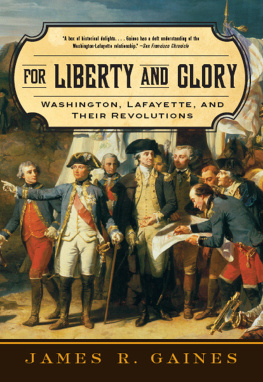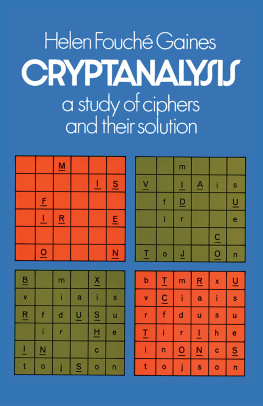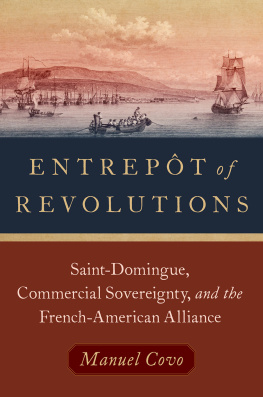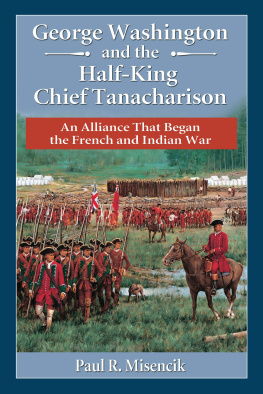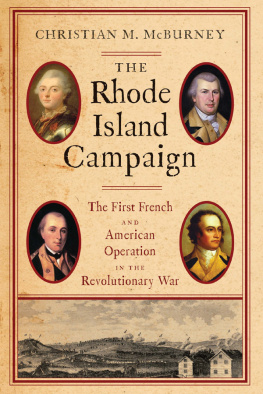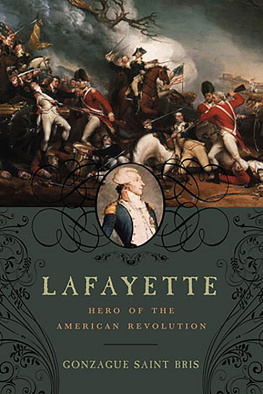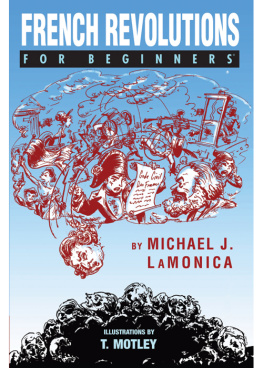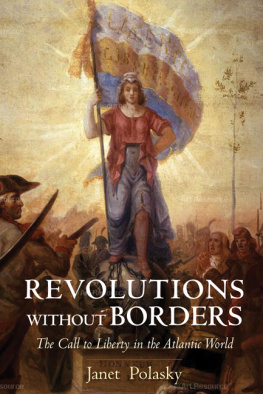ALSO BY JAMES R. GAINES
F OR L IBERTY AND G LORY
Washington, Lafayette, and Their Revolutions

J AMES R. G AINES

W. W. Norton & Company
NEW YORK LONDON
I Think Continually of Those Who Were Truly Great, from New Collected Poems by Stephen Spender, copyright 2004. Reprinted by kind permission of the Estate of Stephen Spender. Excerpts of The Letters of Lafayette to Washington, 17771799 , translated by Louis Gottschalk. Reprinted courtesy of the estate of Louis Gottschalk. Le Marquis de Lafayette: Lafayette in the Age of the American Revolution: Selected Letters and Papers, 17761790 , volumes 14, edited by Stanley J. Idzerda, Roger E. Smith, Linda J. Pike, and Mary Ann Quinn. Copyright 1977, 1979, 1980, 1981 by Cornell University. Le Marquis de Lafayette: Lafayette in the Age of the American Revolution: Selected Letters and Papers, 17761790 , volume 5, edited by Stanley J. Idzerda, Roger E. Smith, Linda J. Pike, and Mary Ann Quinn. Copyright 1983 by Cornell University. Used by permission of the publisher, Cornell University Press. Excerpts throughout from Beaumarchais: The Man Who Was Figaro by Frdric Grendel. Copyright 1977 by Frdric Grendel. Reprinted by permission of HarperCollins Publishers. George Washington, The Papers of George Washington, Revolutionary War Series , volumes 213, edited by W. W. Abbot, Philander D. Chase, Theodore J. Crackel, Frank E. Gizzard Jr., Edward G. Lengel, and Dorothy Twohig. Copyright 19872003 University of Virginia Press. Also, The Papers of George Washington, Presidential Series , volume 1. Copyright 1987 University of Virginia Press. The Taking of the Bastille: July 14th, 1789 by Jacques Godechot. English translation by Jean Stewart, copyright 1970 by Faber and Faber Ltd. Originally published in French as La Prise de la Bastille: 14 Juillet 1789 in the series Trente journes qui ont fait la France . Copyright 1965 by Editions Gallimard. Reprinted by permission of Georges Borchardt, Inc., for Editions Gallimard. George Washington , volumes 14, by James Thomas Flexner. Copyright 1965, 1968, 1970, 1972 by James T. Flexner. By permission of Little, Brown and Co.
Copyright 2007 by James R. Gaines
All rights reserved
For information about permission to reproduce selections from this book, write to Permissions, W. W. Norton & Company, Inc.,
500 Fifth Avenue, New York, NY 10110
Production manager: Devon Zahn
Library of Congress Cataloging-in-Publication Data
Gaines, James R.
For liberty and glory: Washington, Lafayette, and their revolutions / James R. Gaines.1st ed.
p. cm.
Includes bibliographical references.
ISBN: 978-0-393-07204-4
1. Washington, George, 17321799. 2. Washington, George, 17321799Influence.
3. United StatesHistoryRevolution, 17751783. 4. United StatesHistoryRevolution,
17751783Biography. 5. PresidentsUnited StatesBiography. 6. Lafayette, Marie Joseph Paul
Yves Roch Gilbert Du Motier, marquis de, 17571834. 7. Lafayette, Marie Joseph Paul Yves Roch
Gilbert Du Motier, marquis de, 17571834Influence. 8. FranceHistoryRevolution,
17891799. 9. FranceHistoryRevolution, 17891799Biography. 10. StatesmenFranceBiography.
I. Title.
E312.25. G35 2007
973.4'1092dc22
[B]
2007022449
W. W. Norton & Company, Inc., 500 Fifth Avenue, New York, N. Y. 10110
www.wwnorton.com
W. W. Norton & Company Ltd., Castle House, 75/76 Wells Street, W1T 3QT
For Karen
Contents
I think continually of those who were truly great.
The names of those who in their lives fought for life, Who wore at their hearts the fires center.
Born of the sun they traveled a short while towards the sun, And left the vivid air signed with their honor.
S TEPHEN S PENDER
PART ONE
The Quest for Glory


T HANKS TO A RICH historical record, we do not have to imagine the reaction of General George Washington when, on July 31, 1777, he was introduced to the latest French major general to be foisted on him by the Continental Congress, this one a rich aristocrat not yet out of his teens. Virtually ever since Washington had taken command of the colonial army, he had been trying to sweep back a tide of counts, chevaliers, and lesser foreign volunteers, many of whom brought with them enormous self-regard, no English, and less interest in the American cause than in motives ranging from martial vanity to sheriff-dodging. As the chaplain of one French regiment put it, the first volunteers were men crippled with debts and without reputation at home, who gave themselves assumed titles and false names, received distinguished ranks and considerable advances and promptly disappeared. Later candidates were of a somewhat higher caliber, but there were simply too many of them. In early 1776, the Continental Congress had sent a representative to Paris in search of experienced military engineers, and now their recruiter, Silas Deane, seemed to be handing out high commissions to all comers, wild conduct that was about to result in his recall.
Washington had long been pleading that the flow of foreign volunteers be stopped. In October 1776, he wrote one of his congressional supervisors, I am under no small difficulties on account of the French gentlemen that are here. At the turn of the year, he was still complaining: You cannot conceive what a weight these kind of people are upon the serviceentirely useless. Two months after that, he wrote an old friend and fellow Virginian in Congress, I shall be much obliged to you to stop the shoals of French men [who] are coming onin swarms. The reply ignored his request and asked Washington to welcome several others, including one Tronson du Coudray, on whom Deane had bestowed the rank of major general, the highest commission below Washingtons. That had led to a fierce protest from three of Washingtons other generals, one of whom threatened to quit. Since then, though, during his five months service, Coudray had been found so pretentious, self-absorbed, and generally loathsome that, when he accidentally drowned, John Adams considered it a stroke of luck that will save us much altercation.

